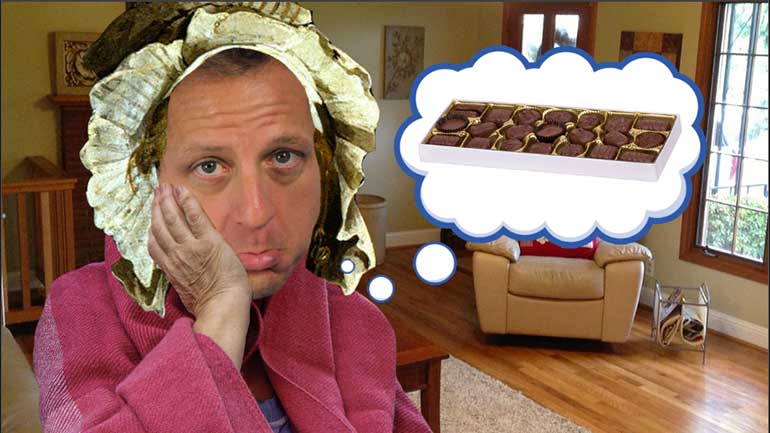ShmoopTube
Where Monty Python meets your 10th grade teacher.
Search Thousands of Shmoop Videos
Modern World History 6.7: War in the Colonies 20 Views
Share It!
Description:
World War I was a total war, which meant that pretty much no one was safe, and war crimes became a big issue.
Transcript
- 00:00
Shmoop! What happens in a war? Artwork disappears, statues get toppled and
- 00:08
that's about it. Oh wait, I almost forgot one little thing, people die. Like lots
- 00:13
and lots and lots of people die. Well during World War One you could get
- 00:18
killed in basically one of two ways. You could either meet your maker at the end
- 00:22
of an old-fashioned bullet, or bayonet, or you could go to that big hoedown in the
Full Transcript
- 00:26
sky, with the help of some clever new technology. Like poison gas, or getting an [soldier in gassed war field]
- 00:32
infection from barbed wire. Yeah neither sounds like a cakewalk.
- 00:36
Hmm wonder if anyone died via cakewalk, never mind.
- 00:40
Anyway if you were a soldier coming face-to-face with death, well that was
- 00:43
not an unexpected thing. The problem was that during World War One soldiers
- 00:48
weren't the only ones who died, civilians did too. This is because this conflict
- 00:53
was a total war, where it was A ok to target innocent men, women and children.[family eating at table]
- 00:57
Well nowadays we prosecute war crimes, or human rights violations that occur
- 01:02
during a war. But war crimes didn't really become a thing until the Nazis
- 01:06
got taken to task at the Nuremberg trials, for obvious reasons. However just
- 01:11
because World War 1 predates the Fuhrer by 20 years, doesn't mean war crimes
- 01:15
weren't happening on the Western Front and elsewhere. In earlier lessons we
- 01:20
discussed how the British made much of German actions in Belgium, in 1914 when,
- 01:24
the Schlieffen Plan driven army was racing towards Paris. And if you don't [Eiffel Tower]
- 01:29
remember that, well go watch some earlier lessons, they're super fun. Well
- 01:33
you know, as fun as lessons about war and death and destruction can be. While
- 01:37
some of the stories spun by the British were greatly exaggerated.
- 01:40
Thousands of Belgians were killed and numerous communities were destroyed in
- 01:43
what came to be known as the rape of Belgium. And that report about the
- 01:47
civilians being used as human shields by German soldiers, yep that one's true. But
- 01:53
the Germans weren't the only ones who were extra naughty during the war. The [Santa's naughty list]
- 01:57
Austro-Hungarians had a field day in Serbia and excused their actions as a
- 02:01
legitimate response to the assassination of Archduke Francis Ferdinand. Now the
- 02:06
Russians killed civilians in eastern Germany and the Germans viewed the
- 02:10
British naval blockade is monstrous. Because by keeping important
- 02:13
supplies out, like food, from reaching Germany, the British directly contributed
- 02:18
to the starvation, of hundreds of thousands, of central Europeans. Which
- 02:22
brings us to the most famous atrocity of World War one, the Armenian Genocide. Well
- 02:28
about 2.5 million Christian Armenians were citizens of the Ottoman Empire at[map of Ottoman Empire]
- 02:33
the beginning of the war. Like many other minority groups they wanted their
- 02:37
independence from the Ottomans. However a group of extreme Turkish nationalists
- 02:42
took over the Empire. When they envisioned their country they believed
- 02:45
it should be for Turks only. With no Armenians allowed in the a clubhouse.
- 02:50
Well the genocide began in the spring of 1915. Between 800,000 and 1.5 million
- 02:56
Armenians were murdered. While Armenia did gain independence after the Ottomans
- 03:00
were defeated in World War one, the country would go on to have a difficult time as [satellite in space]
- 03:04
a Soviet satellite country. The Armenian government finally declared independence
- 03:08
in 1990 and its citizens supported that decision with a vote to leave the Soviet
- 03:12
Union in 1991. Even now more than 100 years after the genocide began it's
- 03:18
still a taboo subject in Turkey. Many Turks believe it's inappropriate to use
- 03:22
the G word to describe what happened in Armenia. Clearly denial isn't just a [man in raging river]
- 03:28
river in Egypt. Lowboy.
Up Next
GED Social Studies 1.1 Civics and Government
Related Videos
When you're about to marry the love of your life, not many things could stop you. However, finding out that your future hubby is keeping his crazy...
Here at Shmoop, we work for kids, not just the bottom line. Founded by David Siminoff and his wife Ellen Siminoff, Shmoop was originally conceived...
ACT Math: Elementary Algebra Drill 4, Problem 5. What is the solution to the problem shown?




